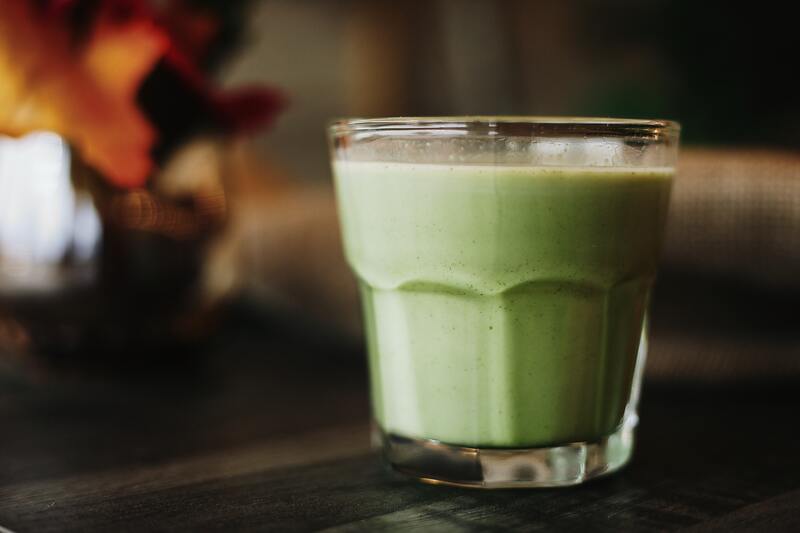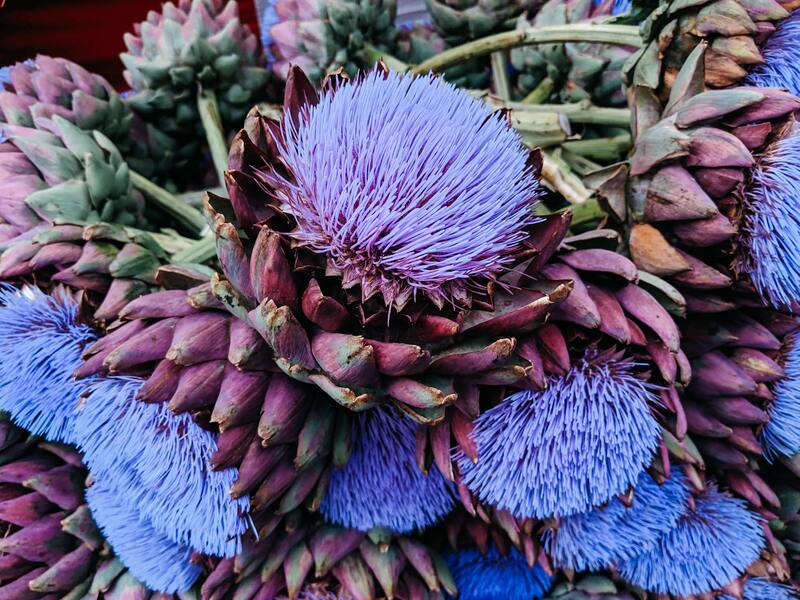|
when you are stressed! Case study: A young woman, very driven and ambitious, has been steadily gaining weight ever since she turned ~25 despite being more conscious of her diet than ever. She doesn’t snack and stays away from carbs. She’ll have an occasional drink on the weekend but it’s always a clear liquor mixed with soda. She skips breakfast when she feels like she over-ate the night before. She exercises daily and even does restorative work like yoga, meditation, and prayer. She’s grown increasingly self-conscious of her body and wonders what she could possibly be doing wrong. We all know this person - it may be you! Unwarranted weight gain is often a driver for someone coming to see a wholistic practitioner, but it’s seldom the real issue. We live in a conundrum - our bodies are designed to survive periods of starvation, but in the modern, developed world this is (fortunately) not a primary concern. In fact, most women would be more than happy to lose some weight. 80% of U.S. women don’t like how they look. Apart from high standards being set in our primary media sources, there is something else going on here. Weight control is not simply a matter of calories in versus energy expended. Why are so many women unhappy with their weight and/or unable to lose weight? In our personal experience, work, and research, 3 things stick out as important here:
*Guess what? They are all interconnected! 1. STRESSThe body’s adaptive stress response is a beautiful thing. When it switches on, it helps us act instantly and intuitively. Whether it be escaping danger or performing our best, our mechanisms for responding to stress make us hyper-focused and energized. Think of a kayaker before going down a 30 ft waterfall or the driver who barely misses a head-on collision because their body reacted before the mind even had a chance. Our body’s innate intelligence brings us out of harm's way thanks to this brilliant stress response. When activated, hormones like cortisol, adrenaline, and noradrenaline are released and our body snaps into action. Here’s the issue: we aren’t designed to stay in this stressed state long-term. We are built for acute, not chronic, stress. This means that when we are constantly in a stressed-out state, those hormones, endocrine organs, and mechanisms get depleted rapidly. Chronic stress bleeds our life force and shifts us into a state of survival mode. And what does survival mean for our evolutionary bodies? STORE FAT. For hundreds of thousands of years, the primary chronic stressor we faced was starvation. Flash forward to chronically stressed out people today and the mechanism is the same. You tell the body you’re stressed, and the body protects you by packing on the fat. When you are stressed, your whole body responds. 2. HORMONESWhich brings us to hormones. Hormones are the intelligent messengers that carry out the stress response. The primary hormones involved in stress are cortisol, adrenaline, and noradrenaline (also known as epinephrine and norepinephrine). These have relationships with our reproductive hormones like testosterone, progesterone, and estrogen. This is why women often lose their period when stressed: the body pulls resources from making reproductive hormones and directs them towards making more stress hormones. *When I was in a perpetually stressed state and dangerously below weight, I lost my period for 8 years!* The HPAT (Hypothalamus - Pituitary - Adrenal - Thyroid) axis is the orchestrator of our stress response. You can think of this highly intelligent interconnected web as the way our brain speaks to our body by way of messenger hormones. When the hypothalamus (the control center of the brain) receives input, it triggers the release of hormones via the pituitary, adrenal, and thyroid glands. The HPAT not only oversees the stress response but also energy metabolism because the two go hand in hand. Cortisol is the main hormone talked about when it comes to chronic stress and weight gain. “Cortisol belly” is even a term for folks who tend to gain weight around their midsection. This hormone is produced by the cortex (outer layer) of the adrenal glands and is triggered for release after receiving messages from the pituitary and hypothalamus. Since cortisol is a stress hormone designed to protect us from starvation and death, it is only doing its job when it causes the accumulation of abdominal fat: this is the region where our most important organs reside, and fat protects them! Fitness and biohacking expert Ben Greenfield mentions several case studies in his book, Beyond Training, in which women training for marathons and triathlons would accumulate fat around their belly despite exercising strenuously and eating clean. An excess of stress-induced cortisol release is likely the explanation. Thyroid hormones can also fall out of balance as a result of chronic stress. The thyroid and its messengers regulate metabolism, body temperature, growth, and development. That’s why low thyroid hormones can cause sluggish metabolism, pesky weight gain, constipation, and bloating. Low thyroid can also impede the detoxification of toxic metabolites and cause the delayed drainage of hormones like estrogen, insulin, and leptin which are all associated with weight gain (Yance). Furthermore, inability to detox leads one to feel even more inflamed, bloaty, and downright yucky. Estrogen imbalance is often associated with weight gain and can be a source of endogenous stress to the body if it’s not detoxified efficiently. It’s very common for both men and women to struggle with estrogen breakdown because our modern world is filled with things that mimic estrogen. Plastics (especially BPA) leached into food and water supplies, widespread pharmaceutical and birth control use (even if you aren’t taking these drugs, they don’t effectively breakdown so recirculate in the water supply), and our love of soy all contribute to excessive estrogens and xeno-estrogens in the environment. You can see how a vicious cycle of toxicity can kick in when we are perpetually in a stressed state, right? “The balancing of hormones by the hypothalamus, pituitary, and thyroid is a continual dance that is influenced by the emotions, the environments, and seasonal changes.” (Yance, 2013) **For me, a clear sign of inability to detox estrogen were my cyclically sore boobs following ovulation. When I started taking herbs and nutraceuticals like Calcium-D-Glucarate to help with my detoxification pathways and liver health, the soreness went away.** 3. DysbiosisThe make-up of our microbiome says a lot - if not everything - about us. Each one of us has an individualized and highly dynamic ecosystem in our gut that is constantly influenced by genetic and environmental factors. While each individual’s microbiome is unique, similarities exist in the microbial composition and function of healthy peoples’, suggesting a common foundation required for host (i.e. YOU!) health (Turnbaugh et al, 2007). A balanced microbiome means good immunity (after all 80% of our immune system lives here), healthy brain function (70% of our serotonin is made here, too), and a sound digestion. However, when this core microbial community deviates from the norm, dysbiosis occurs. Dysbiosis (from dys-, or “bad”, & -biosis, Greek for “mode of life”) is not only uncomfortable, but it is also associated with an increased risk of disease ranging from metabolic (obesity and type 2 diabetes) to autoimmune and neurodegenerative (Woting & Blaunt, 2016; Pistollato et al, 2016; Budhram et al, 2017). Research now suggests that dysbiosis plays a role in your ability to feel satiation or hunger, energized or bloated, and how easily you gain or lose weight. Novel studies are beginning to illuminate how certain gut bacteria may alter appetite control via the gut-brain axis. In fact, the etiology and progression of eating disorders can even be linked to identified microbial communities (Lam et al, 2017)! Animal data now reveals how particular gut bacteria impact the production and activity of appetite-regulating hormones and affect the HPA axis via neural and cytokine-mediated pathways. For example, Bifidobacterium spp. produce calming neurotransmitters like GABA and Enterococcus spp. which play a huge role in serotonin production (Banks et al, 2015; Cryan & Dinan, 2012; Lam et al, 2017). Dr. Joel Greene has shed light on incredible research showing how certain microbial communities are more abundant in lean people than overweight people: Akkermansia and Bifidobacteria. Akkermansia is very prolific in the guts of very fit people. It helps maintain the layer of mucus on the gut’s surface and plays a role in calories burned. Bifidobacteria can turn on the genes that keep one trim and are also involved in cellular energy production. Lastly, having a dysbiotic gut can simply make you feel fat. Excessive bacteria - good or bad - can have a farty party after you consume a carb-rich meal (even healthy carbs like cassava and sweet potatoes!), leaving you feeling uncomfortably full and bloated. There was a period of time where I was chronically underweight but always felt “fat” because I consumed a vegetarian diet rich with raw cruciferous veggies and hummus. I thought I was being healthy while in actuality, I was skewing my microbial communities out of balance with my strict and imbalanced eating habits. So there you have it - in our opinion, stress, hormone imbalance, and dysbiosis are the 3 interconnected reasons why losing weight can be so hard despite doing everything “right”. If you are someone who falls into this category, ask yourself the following questions before cutting calories and exercising profusely:
Herb & Nutrient ImmersionHere are 10 herbal and nutrient tips that helped me on my path towards restoring a healthy weight. 1. Protein - proteins are made of amino acids, and amino acids are the building blocks of our hormones, neurotransmitters, muscle, and connective tissue - this means if you want good hormone function and muscle definition, eat your protein! You should be getting the equivalent of your ideal body weight in grams per day. So if your goal is 130 lbs, see if you can consume 130 g of protein daily. Learning this was a bit of a shock to me because I was eating way below this regularly. When I even marginally increased my protein intake (and supported it with digestive enzymes*), I noticed better tone and muscle growth despite keeping my exercise the same. High protein-foods also stimulate thermogenesis, which is the body’s process of generating heat by burning fat cells. Plus, higher protein diets means more satiety (because it boosts leptin sensitivity) and less bloat. *Increasing protein intake suddenly might leave you feeling heavy as a rock if you haven’t addressed your stomach acid and digestive enzyme levels. 2. Matcha - Camellia sinensis in all her forms (green tea, white tea, matcha) also stimulates thermogenesis due to its high concentration of caffeine and catechins. This means you burn fat more efficiently. Green tea also helps regulate blood sugar, and high blood sugar is very stressful to the body. I love Matcha with coconut cream in the afternoon. It gives me clean energy, cuts cravings for a coffee and cookie (which almost always leaves me feeling shaky and headache-y), and I’ve found it helps me have a 2nd bowel movement - something I was never able to do. 3. Ginger - Zingiber officinale is another thermogenesis-stimulating herb with an affinity for improving digestive function. This means that Ginger’s benefits are two-fold: better, more efficient digestion means less bloat and more satiation; thermogenesis means more efficient burning of fat for energy! I love a cup of hot ginger tea with meals to improve my digestion and metabolism. 4. Spicy peppers - hot spicy foods like chili, cayenne, jalapeno, and paprika all warm the digestive system, improving digestion and stimulating - you guessed it! - thermogenesis. For digestion to be thorough and efficient, it must be warm. Many of us in the Western world have a Cold and Damp diet according to Traditional Chinese Medicine. This means that foods aren’t always completely broken down, leading to stagnation, congestion, and down-right clogged and inflamed sensations. Incorporating spicy foods brings circulation and warmth to the gut. 5. Apples and apple cider vinegar - there’s a reason using hot vinegar to clean a crusty casserole dish is so effective; vinegar has the same effect in the body! A shot of ACV (2 tbsp, 4 oz water, lemon and/or honey to taste) is like giving your insides a good scrub-down. As a result of living in a toxic world, we tend to accumulate toxins. Oftentimes, it’s this ambiguous and compounded crud clogging up our drainage and detox pathways that make us feel fat and inflamed. I’ve found that having a shot of ACV first thing in the morning and again in the afternoon can really have an astounding effect on my mood, alertness, and sense of clarity. Apples are similarly incredible. Joel Greene points out that apple skins are the ultimate food source for Akkermansia, that beneficial bacteria that makes metabolism super efficient. Apples also contain lots of vitamins, antioxidants, and fiber. Just be sure you are eating fruit before a meal, and always go for organic and low-sugar varieties like Granny Smith - new varieties of conventional apples are sometimes just delivery mechanisms for pesticides and un-naturally boosted sugars. 6. Artichokes and artichoke leaf tea - this may be the most under-appreciated vegetable. The immature bud of the Cynara scolymus plant is a food while the leaves are a powerful remedy for high blood sugar and cranky livers. Both the food and herb are known to help normalize lipids. The very bitter leaf is an incredible cholagogue, improving bile flow for more efficient digestion and assimilation of fats. I’ve found the touch of artichoke leaf in our Healing Harvest tea to be an excellent companion to a meal. 7. All things Coconut - every part of the coconut can be part of a robust, balanced diet. The oil and butter are rich in medium-chained triglycerides which offer an immediate source of fuel (unlike other fats) but don’t cause a blood sugar spike (unlike many carbs). Adding coconut cream or milk, or blending oil into my morning coffee allows me to decrease my feeding window while not causing me to crash or fall out of ketosis. Coconut water is rich in electrolytes for very efficient hydration, and the flour is rich in fiber and a great gluten-free substitute. I’ll commonly make cookies with a blend of coconut and pumpkin seed flour for a low-carb, high energy snack. Check out our Cocoa-kies recipe. 8. Grapefruit - there’s just something about eating half a grapefruit that leaves me feeling clean and rejuvenated. Grapefruits have a fascinating chemistry that works on the phases of liver detox while also helping to reduce insulin and increase metabolism. I love to add a splash to my morning ACV shot, or to snack on a half after dinner. 9. Dandelion greens- Taraxacum officinale translates to “the official remedy for disorders”, implying that this is a plant you want on your team. All parts of Dandelion from the roots to the flower have been used for centuries as both medicine in food. Each part of the plant as a unique gift to offer, but the greens are especially great for cleaning up a sluggish, congested digestive system. Dandelion greens are incredibly bitter, indicating their use as a cholagogue for dredging bile from the liver and gallbladder. They also have a potent redox-antioxidant capacity which means they protect the liver from toxins. Their potassium-sparing diuretic action means they help remove retained water and inflammation, giving your drainage pipes a little reboot every time you eat them. 10. Adaptogens - I saved the best for last. For the modern human with multiple stressors ranging from environmental to dietary and emotional, leaning on the helping hand of adaptogens is a wise decision. Adaptogens are like personal trainers for your stress response - while you might not be able to change the stress all around you, you can change the way you respond to them. This is where adaptogens play a fascinating role. They are unique and renowned in their ability to re-regulate our regulatory systems like metabolism, detoxification, and hormone balance by acting on the HPA axis (remember that complex communication network that connects the brain to the body?). While all adaptogens have this unique trait in common, each is different and in my opinion, always works better when combined with other supportive herbs. We use adaptogens in formula in many of our products. My go-to is Rally - it’s got calming, warming Ashwagandha, nourishing Shatavari, and grounding Reishi to start my day off in the right state of mind. Resources Banks, W. A., Gray, A. M., Erickson, M. A., Salameh, T. S., Damodarasamy, M., Sheibani, N., ... & Reed, M. J. (2015). Lipopolysaccharide-induced blood-brain barrier disruption: roles of cyclooxygenase, oxidative stress, neuroinflammation, and elements of the neurovascular unit. Journal of neuroinflammation, 12(1), 1-15.
Budhram, A., Parvathy, S., Kremenchutzky, M., & Silverman, M. (2017). Breaking down the gut microbiome composition in multiple sclerosis. Multiple Sclerosis Journal, 23(5), 628-636. Cryan, J. F., & Dinan, T. G. (2012). Mind-altering microorganisms: the impact of the gut microbiota on brain and behaviour. Nature reviews neuroscience, 13(10), 701-712. Lam, Y. Y., Maguire, S., Palacios, T., & Caterson, I. D. (2017). Are the gut bacteria telling us to eat or not to eat? Reviewing the role of gut microbiota in the etiology, disease progression and treatment of eating disorders. Nutrients, 9(6), 602. McLaren, L., & Kuh, D. (2004). Body dissatisfaction in midlife women. Journal of Women & Aging, 16(1-2), 35-54. Gallivan, H.R. (2014). Teens, Social Media And Body Image. Park Nicollet Melrose Center. Url:https://www.macmh.org/wp-content/uploads/2014/05/18_Gallivan_Teens-social-media-body-image-presentation-H-Gallivan-Spring-2014.pdf Greenfield, B (2020). Joel Greene Podcast Part 1: How To Reboot The Gut, Eat Cheesecake Without Gaining Weight, Amplify Any Fasting Protocol & Maximize Fat Loss. In The Ben Greenfield Fitness Podcast. https://bengreenfieldfitness.com/podcast/biohacking-podcasts/joel-greene/ Pistollato, F., Sumalla Cano, S., Elio, I., Masias Vergara, M., Giampieri, F., & Battino, M. (2016). Role of gut microbiota and nutrients in amyloid formation and pathogenesis of Alzheimer disease. Nutrition reviews, 74(10), 624-634. Turnbaugh, P. J., Ley, R. E., Hamady, M., Fraser-Liggett, C. M., Knight, R., & Gordon, J. I. (2007). The human microbiome project. Nature, 449(7164), 804-810. Woting, A., & Blaut, M. (2016). The intestinal microbiota in metabolic disease. Nutrients, 8(4), 202. Yance, D. R. (2013). Adaptogens in medical herbalism: elite herbs and natural compounds for mastering stress, aging, and chronic disease. Simon and Schuster. |
Eileen Brantley & Amy WrightWe are Herb Girls Athens, LLC. Read our blog! Archives
November 2022
Categories
All
|









 RSS Feed
RSS Feed
